
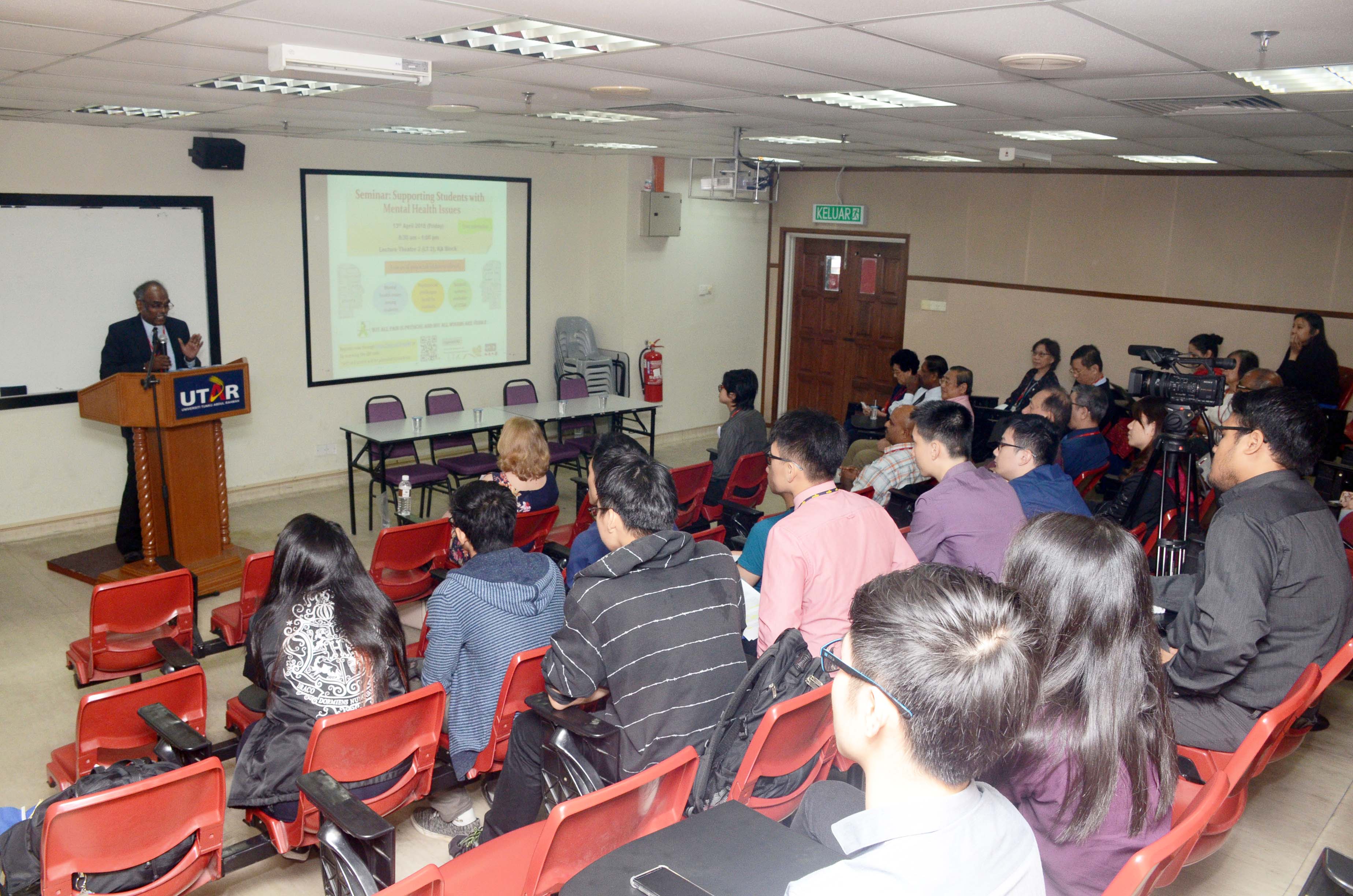
Dr Judson giving an introduction of the title
A seminar titled “Supporting Students with Mental Health Issues” was organised by the Centre for Research on Non-Communicable Diseases (CRNCD) on 13 April 2018 at Sungai Long Campus.
The seminar aimed to promote the awareness of mental health issues among students and educate them on the support systems available. The seminar provided a platform for both staff and students to share their opinions and perspectives regarding mental health issues. It also aimed to provide the participants with a better understanding of ways to maintain mental health issues, besides discussing the strategies and support mechanism for the issue from national and international perspectives.
Initiating the seminar, Chairperson of CRNCD Prof Dr John Paul Evangel Judson highlighted the significance of addressing mental health issues among students. He said, “The most worrying part of this is the stigma that makes it very difficult to deal with the issue. Vast majority who suffer mental health issues are still suffering, isolating themselves and feeling uncertain of where to get the support. Most of them would tend to rely on informal supports from the family members and friends. This is a medical condition, they should be seeking professionals.”
Dr Pamela Hagan, Director of Student Wellbeing School of Medicine University of Nottingham, United Kingdom started the first session by raising concern on the situation that students face when it comes to handling their mental health issues. “From the research sources, we can see that the recent years show five times as many students disclosed mental-health problems compared to 10 years ago. Social media promote unrealistic life expectations which can lead to depression and anxiety when the person cannot fit into the society,” she said.
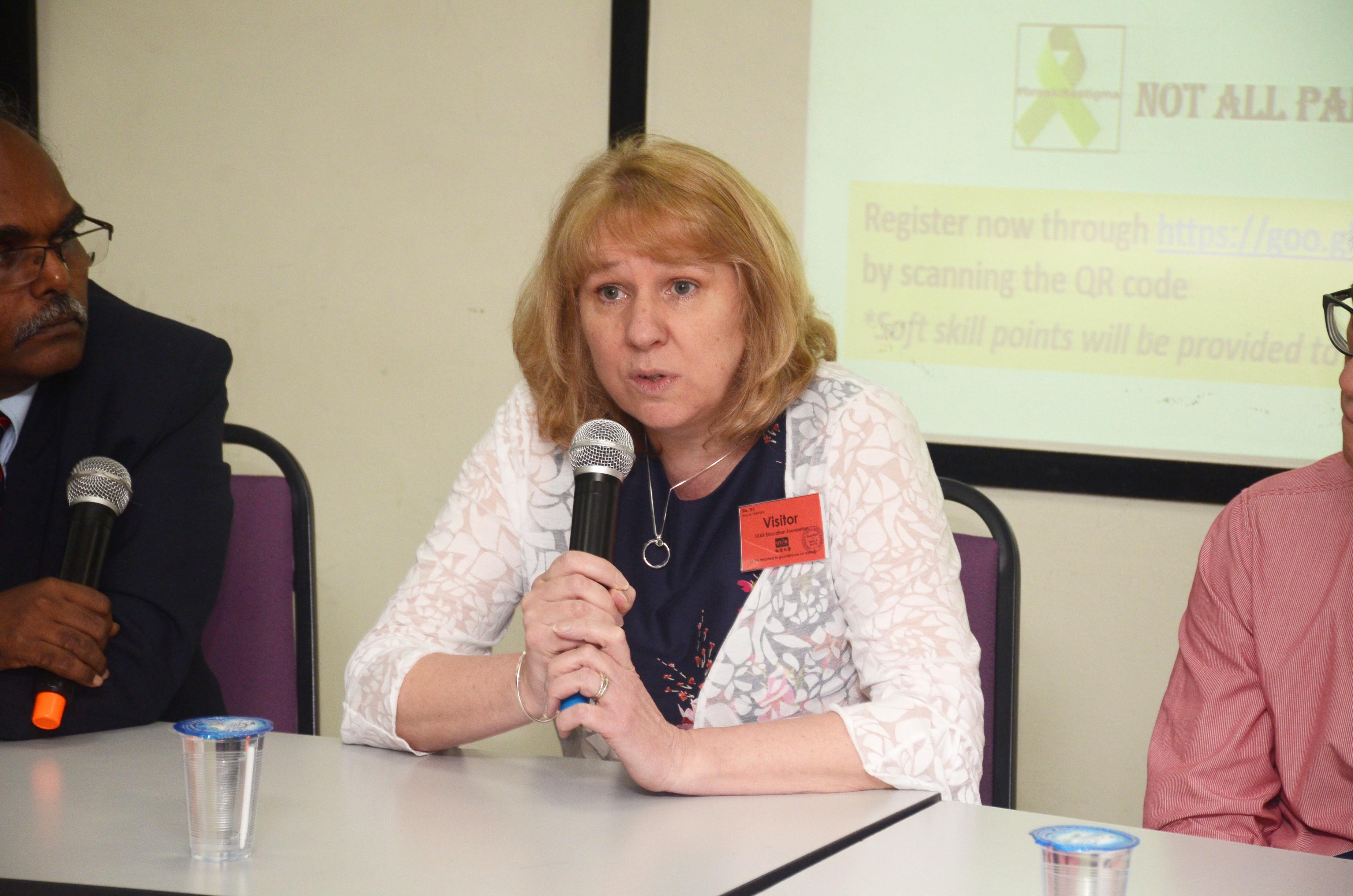
Dr Hagan answering question from an audience
Focusing on medical students, Dr Hagan cited a news report of medical students having a higher rate of depression and suicide compared to the rest. “Medical students tend to consult their friends and family for health problems and normally seek medical school support as the last resort. The issue could be also caused by the lack of confidence in generic university support service and the lack of trust in confidentiality. Some medical students have the concern that mental health problem might become a blockade to register as a medical practitioner,” she explained.
Dr Hagan also found out that medical students are the least to seek counselling service compared to students from other fields based on a survey conducted at her university. As for that, initiatives were taken in her university to help medical students ease their minds. Some of the initiatives were allowing students to bring their pets to the campus to spend time with and creating a serenity room that provides a calm atmosphere, bean bags and light drinks for students to have a relaxing and peaceful break.
The seminar proceeded with another session from Faculty of Medicine and Health Sciences (FMHS) Prof Dr M Parameshvara Deva who covered the issue in a broader context. He said, “Many countries today with huge population, around 20 to 30 million people have no psychiatrist. Mental issues have always been treated badly. Until today it still is because of the stigma.”
He also emphasised on the Asian situation that generically does not put mental health issues as a top priority, “It is quite different in Asia. Most developing countries are concerned about time and money. When there is a shortage of budget, mental health will be the least concerned. Mental health was not really taught despite the reality that we are facing it regularly. Policies are limited and many places do not have psychiatric service.”
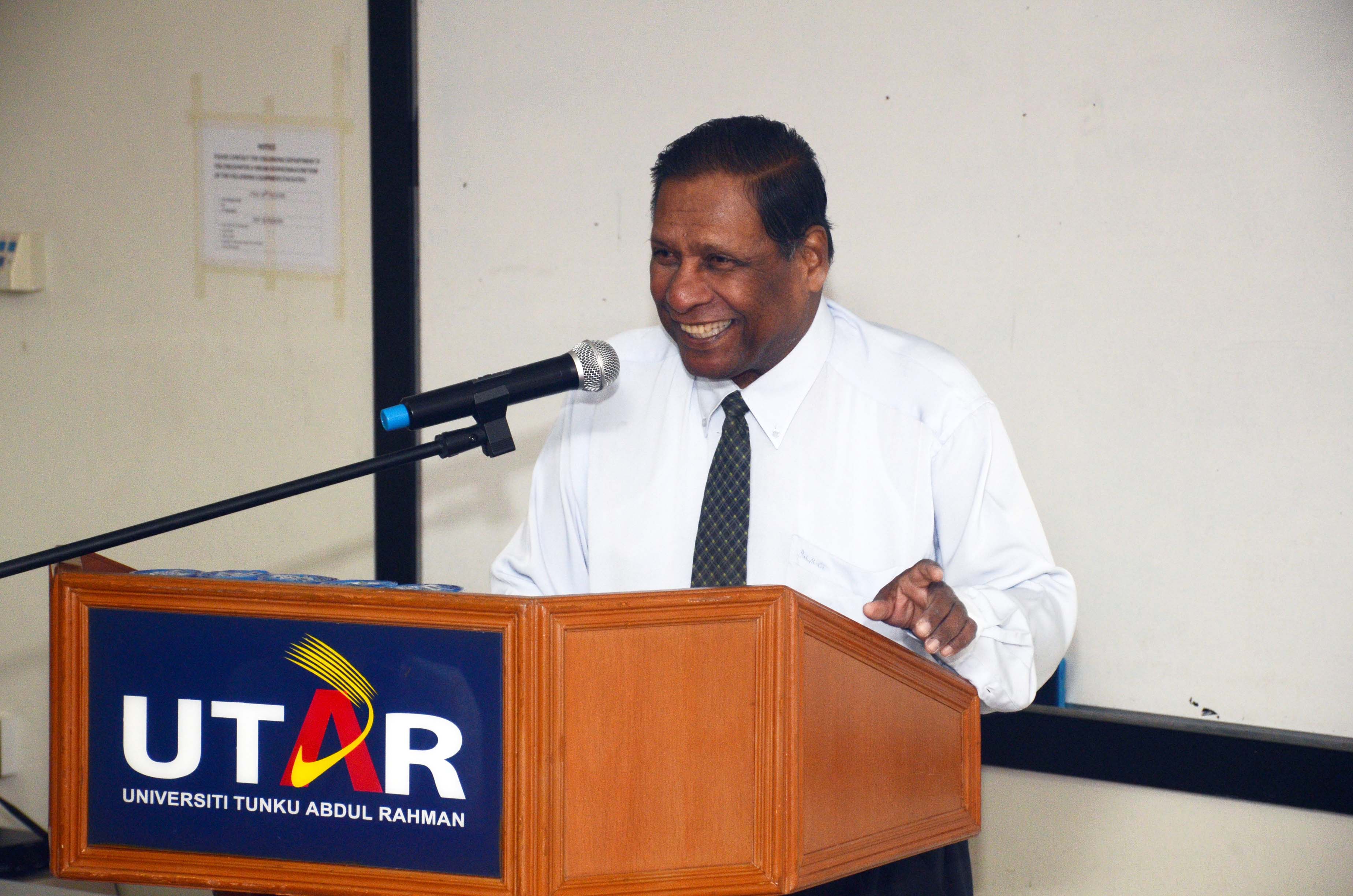
Dr Deva delivering his talk
After a short break, President of Medicine and Health Science Society Kong Eu Jinn took charge of the podium to provide an insight into the medical students’ perspective relating to their mental health. He shared the heavy expectations from people around, the methods of choice in relieving stress and the burden in their study. “Having access to the internet has its drawback to us. With the unlimited source of information, medical students tend to get confused between the choice of what is important and what is not,” said Kong.
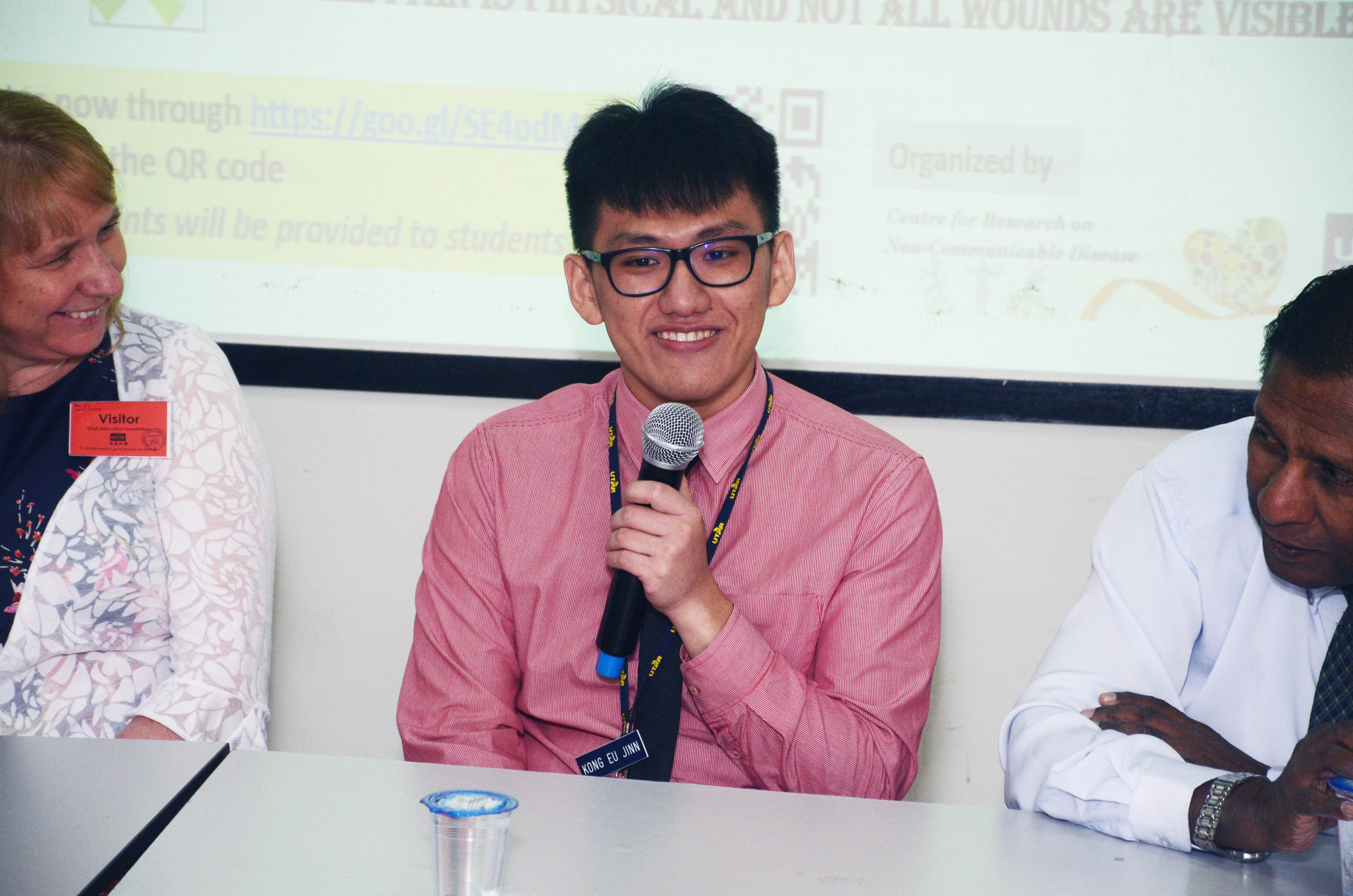
Kong answering a question from an audience
Despite all the challenges, he emphasised that he did not regret the choice of being a medical student. To endure the difficult times, he advised, “When life is imbalanced, your frustration spikes and you will be vulnerable to depression but medical school is not about survival of the fittest. It is about working together to become a better medical practitioner.”
Before the seminar wrapped up, Department of Student Affairs Counsellor Tan Chin Yee shared the available services offered by the guidance and counselling unit. The services include individual and group counselling, talks and workshops, and personality and psychological assessment. Some of the popular cases received by the guidance and counselling unit are procrastination, nervousness, increased absence in class and suicidal thoughts. Students who need assistance or curious to know themselves better can walk-in or make appointments through a phone call or email.
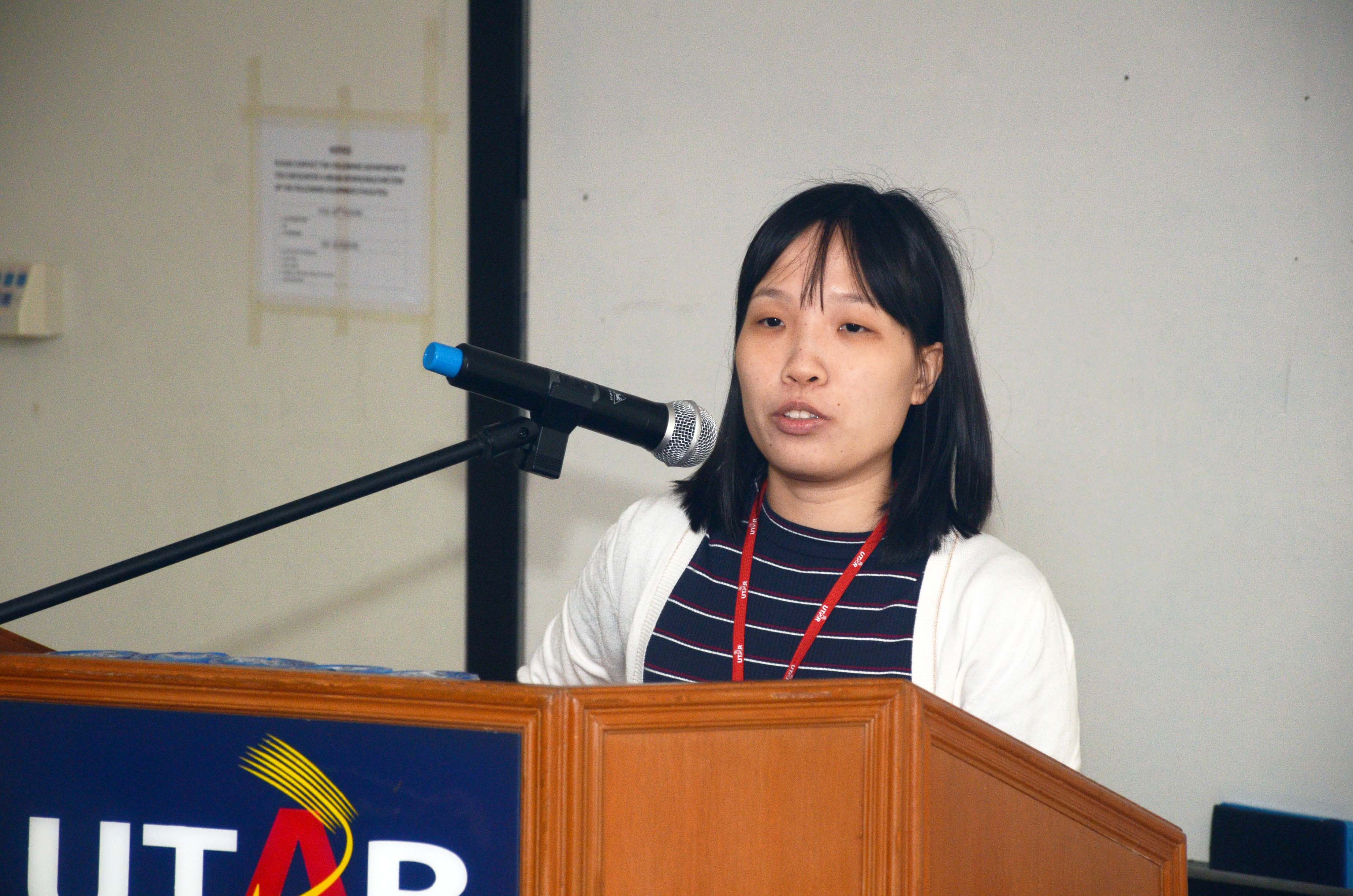
Tan introducing counselling and guidance unit to the audiences
The seminar ended with an in-depth discussion session regarding the steps that can be taken to improve the current situation. “Look at the student as a whole person. Take care of their well-being and development in all the aspects,” Dr Hagan advised.
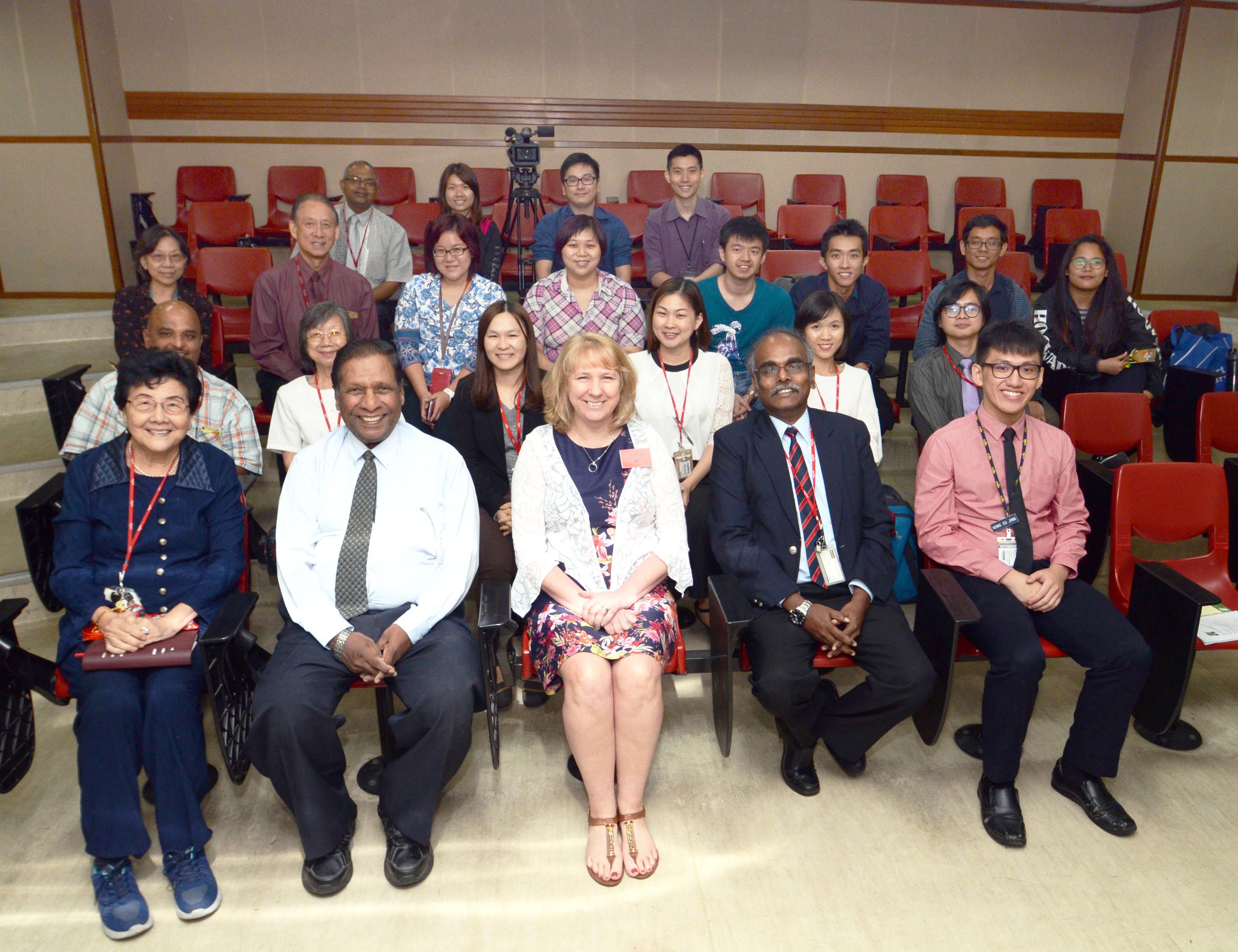
Group photo after the seminar
© 2019 UNIVERSITI TUNKU ABDUL RAHMAN DU012(A).
Wholly owned by UTAR Education Foundation Co. No. 578227-M LEGAL STATEMENT TERM OF USAGE PRIVACY NOTICE